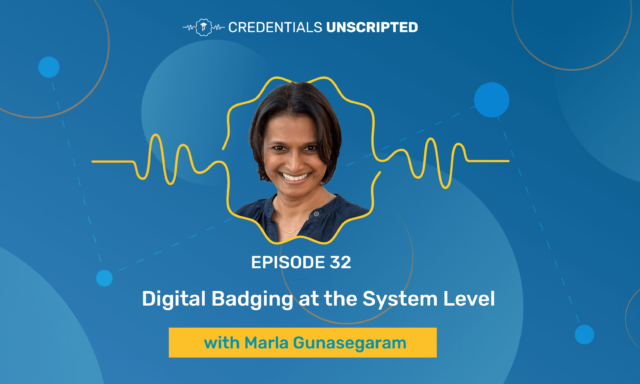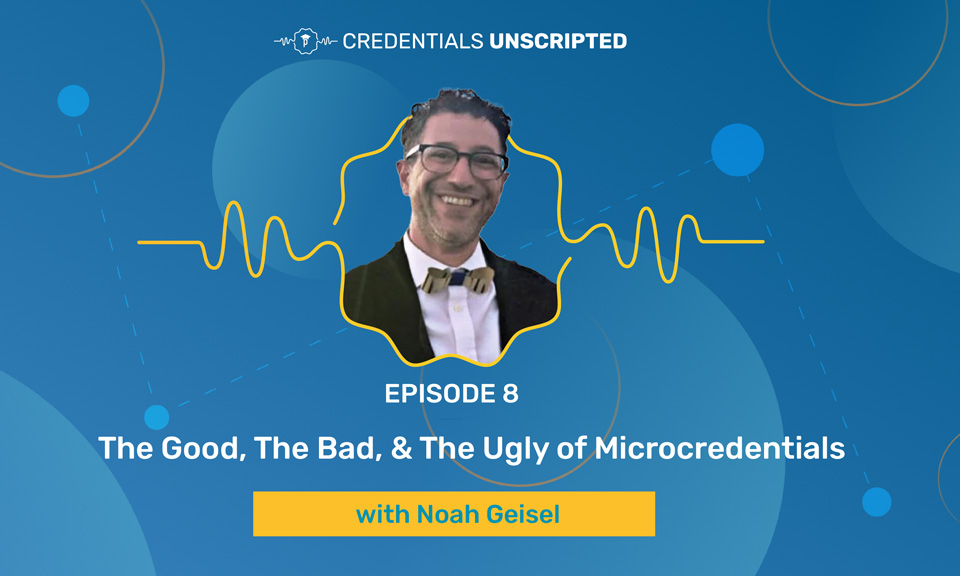
Higher Ed
Digital Badging at the System Level
We use cookies to help you navigate efficiently and perform certain functions. You will find detailed information about all cookies under each consent category below.
The cookies that are categorized as "Necessary" are stored on your browser as they are essential for enabling the basic functionalities of the site. ...
Necessary cookies are required to enable the basic features of this site, such as providing secure log-in or adjusting your consent preferences. These cookies do not store any personally identifiable data.
Functional cookies help perform certain functionalities like sharing the content of the website on social media platforms, collecting feedback, and other third-party features.
Analytical cookies are used to understand how visitors interact with the website. These cookies help provide information on metrics such as the number of visitors, bounce rate, traffic source, etc.
Performance cookies are used to understand and analyze the key performance indexes of the website which helps in delivering a better user experience for the visitors.
Advertisement cookies are used to provide visitors with customized advertisements based on the pages you visited previously and to analyze the effectiveness of the ad campaigns.
Other cookies are those that are being identified and have not been classified into any category as yet.

In a previous podcast episode, we sat down with Noah Geisel, Microcredentials Program Manager at the University of Colorado Boulder and co-founder of the annual Badge Summit, to discuss the transformative potential of microcredentials in education. With his extensive experience in the field, Noah shared his journey, key insights, and why microcredentials are more than just a trend—they’re a movement reshaping the future of learning and work.
According to Noah, the “why” of microcredentials is clear: they empower learners to demonstrate their skills, competencies, and achievements in a way that traditional credentials often can’t. For employers, these digital artifacts provide a trusted, granular view of a candidate’s abilities, moving beyond resumes and interviews to create more efficient and equitable hiring processes.
But it’s not just about the workforce. Microcredentials also serve as a vital tool for educational institutions, enabling them to offer recognition for non-traditional learning experiences and better support the growing number of learners with some college experience but no degree.
Noah emphasized that microcredentials are about more than issuing badges—they’re about creating a meaningful narrative of a learner’s journey. He likened current learning records to a bookshelf with empty covers, saying, “Microcredentials are the pages inside the book.” By embedding metadata, rubrics, and competencies into digital credentials, institutions can provide a rich, verifiable story of what students know and can do.
As microcredentials gain momentum, Noah highlighted the importance of early adoption. “Institutions now have the opportunity to design systems intentionally, engage stakeholders, and shape what the future looks like,” he noted. Waiting too long may mean scrambling to catch up in a landscape where microcredentials are ubiquitous.
Whether you’re an educator, employer, or student, microcredentials are transforming how we learn, recognize, and apply skills. At Parchment, we’re helping institutions create meaningful, skills-based credentials through our Certificate Services, empowering learners to showcase their achievements and stay ahead in a competitive workforce. Listen to the full podcast recording to explore how this innovative approach can empower learners, support institutional goals, and address the evolving demands of the workforce.
